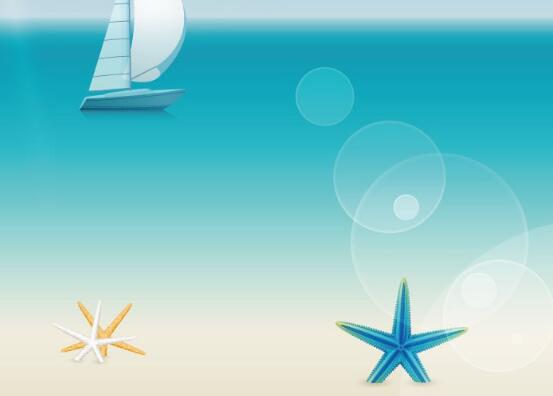
李大钊先生曾说过:人生最有趣味的事情,就是送旧迎新,因为人类最高的欲求,是在时时创造新的生活。
1新学期幼师寄语
亲爱的同学,大家好!
当广袤的北方大地,嗅着她春意微微的气息时,开始了它生机盎然的变化。在这意气风发,斗志昂扬的新学期,同学们定会有新的希望和对明天的憧憬,那么把今天当作一个起点吧,从今天开始,或许你以前是老师眼中的后进生,你是否想过,从现在开始,发奋努力,迎头赶上;或许,你以前是一个思想有些玩劣,让老师头疼,让、家长伤心的同学,你是否想过,在新学期要规范自己的言行,约束自己的鲁莽,使自己成为一个受老师欣赏,受同学夸赞,让家长宽心的人;或许你在学习方面有困难,你是否想过,在其他方面获得进步,在一些活动中,展示自己的特长,从而促进学习的进步;或许你各个方面都很优秀,知识无穷尽,志当存高远。
新的一年开启新的希望,新的空白承载新的梦想,同学们,在你们
作为一名班主任,我希望同学们做到对社会有责任心,对父母有孝心,对同学有爱心,对学习有恒心,对前途有信心。
我还希望你们努力做到平凡而不平庸,大胆而不大意,敢说而不空说,谦让而不迁就,虚心而不虚荣,天真而不幼稚,活泼而守纪律,倔强而不固执,热情而不冲动,乐观而不盲目。
在这里,送给同学们四句诗,与同学们共勉。
“少壮不努力,老大徒伤悲。”亲爱的同学们,请珍惜每一个晴朗的早晨,全身心地投入学习,让那灿烂的朝阳点缀我们的精彩人生。 “欲穷千里目,更上一层楼。”希望同学们在新学期里积极向上,大显身手发展自己的个性特长,全面提高自己的综合素质。
“梅花香自苦寒来,宝剑锋从磨砺出。”成功之花是用辛勤的汗水浇灌出来的。无论何时,我们都需要刻苦自觉的精神,都需要顽强拼搏的勇气。
“问渠哪得清如许,为有源头活水来。”一泓清池,必须不断有清泉的注入。读书也是一样,读书贵在持之以恒,要用心去感悟每一本书每一个文字。
相信在新的学期里,这四句诗会伴随同学们取得更大的进步。
播种一个信念,收获一个行动;播种一个行动,收获一个习惯;播种一个习惯,收获一个性格;播种一个性格,收获一个命运。
在新学期里,祝同学们,象雄鹰一样在希望的天空展翅翱翔,汲取知识的真谛,立鸿鹄之志,拼搏进取,再创佳绩!祝老师们工作顺利,和谐共进!
篇2:新学期教师寄语
凭借知识,为你们撑起片片蓝天;
借助羽翼,替你们遮挡阵阵风雨;
积淀情感,给你们匡扶颗颗心灵。
在知识的`海洋上航行:自信是船,勤奋是帆,毅力是风,老师是引航员,你们是舵手。只有我们用心协力,不畏艰险,才能到达成功的彼岸。
你的收获,我的快乐;你的快乐,我的幸福。愿快乐幸福伴随你我共度愉快而充实的新学期。
新学期英语教师寄语
新学期开学了,很多同学都会问这样一个问题:如何学好英语?
回答这个问题之前,我想与大家分享我个人的感受:
首先祝愿大家爱上英语,就会觉得学之有味:我们经常听见年轻的中国人在中外记者招待会上的现场翻译,(他)她们那准确到位的翻译,漂亮地道的语音语调,优美清亮的嗓音,令我这样作英语教师的人叹服感慨:英语原来是可以学到这样好的程度,英语真的是这样美!
当然,这样高的英语水平,自然不是有多少人能够达到。但是它说明一个事实:事在人为。毋庸置疑,学好英语并非易事,英语不是一两句话或别人的
我个人觉得,要真正学好英语,需要从音标学起,把握好读音规则,能拼读和记忆单词,加之掌握语法,多读多写。
英语和汉语在思维习惯、语法等方面有很多不同。要想学好英语,需要摆脱汉语的影响,形成英语的表达习惯。这不是一朝一夕可以达到的,需要多多练习。
建议抓住一切机会多听,多读,多练,多写。这是老生长谈,但语言学习就是这样,没有捷径。要有毅力,有计划地一步一步提高。英语学习是一个学习过程,也是一个心理调整和适应的过程。
建议逐渐系统掌握英语的基础语法:词类(名词、动词、形容词...)和各种词类的用法及变化(如动词的时态变化、不定式、分词),英语的基本句型、基本的时态,复合句中的名词性从句、定语从句状语从句)等等。
你们会发现英语的很多特点,如:英语是一种曲折的语言,不同的词用在不同的场合要求用不同的形式,动词作谓语在不同的时态中就有不同的形式,还有非谓语的不定式、分词形式,名词有单数和复数,形容词有比较级、最高级等等。句法方面,英语的句子结构和汉语也不相同,如疑问句、祈使句、倒装句,复合句...还有英语许多的习惯性表达方式,用英语时要心中有这些概念。
还有同学总想找捷径,其实真的没有什么捷径。什么都得注意训练:听力、词汇、语法、写作、阅读和翻译都很重要。
同学们,努力学习吧,只要你想做好一件事,你就能作好它!
一、 写出以下各形容词的比较级和最高级:
1. nice ______________________ 2. fat ____________________
3. slow _____________________ 4. dry ____________________
5. happy ____________________ 6. wet ____________________
7. much ____________________ 8. ill _____________________
9. little _____________________ 10. bad ___________________
11. thin ______________________ 12. far ____________________
13. early _____________________ 14. careful_________________
15. exciting ___________________ 16. busy __________________
二、根据句意,用所括号内所级形容词的比较等级形式填空:
1. Mr. Smith is _________ man in this office. (rich)
2. Winter is _________ season of the years. (cold)
3. This radio is not so ________ as that one. (cheap)
4. It is much _______ today than yesterday. (hot)
5. She is a little ________ than her classmates. (careful)
6. ________ people came to the meeting than last time. (many)
7. Which book is ________, this one or that one? (easy)
8. My room is _______ than yours. (small)
9. Hainan is _______ from Beijing than Hunan. (far)
10. Skating is _______ than swimming. (exciting)
11. Jim is _______ than all the others. (honest)
12. Things are getting _______ and _______. (bad)
13. The higher you climb, the _______ it will be. (cold)
14. Now his life is becoming ________ and _______. (difficult)
15. There are _______ boys than girls in our class. (few)
【参考答案】
1.nicer / nicest
2. fatter / fattest
3. slower / slowest
4. drier / driest
5. happier / happiest
6. wetter / wettest
7. more / most
8. worse / worst
9. less / least
10. worse / worst
11. thinner / thinnest
12. farther / farthest 或 further / furthest
13. earlier / earliest
14. more careful / most careful
15. more exciting / most exciting
16. busier / busiest
1. richest
2. coldest
3. cheap
4. hotter
5. more careful
6. More
7. easier
8. smaller
9. farter [further]
10. more exciting
11. more honest
12. worse, worse
13. colder
14. more, more difficult
15. fewer
比较级和最高级的用法
在英语中通常用下列方式表示的词:在形容词或副词前加more(如 more natural,more clearly )或加后缀 -er(newer,sooner )。典型的是指形容词或副词所表示的质、量或关系的增加。英语句子中,将比较两个主体的方法叫做“比较句型”。其中,像“A比B更……”的表达方式称为比较级;而“A最……”的表达方式则称为最高级。组成句子的方式是将形容词或副词变化成比较级或最高级的形态。
一、形容词、副词的比较级和最高级的构成规则
1.一般单音节词和少数以-er,-ow结尾的双音节词,比较级在后面加-er,最高级在后面加-est;
(1)单音节词
如:small→smaller→smallest short→shorter→shortest
tall→taller→tallest great→greater→greatest
(2)双音节词
如:clever→cleverer→cleverest narrow→narrower→narrowest
2.以不发音e结尾的单音节词,比较在原级后加-r,最高级在原级后加-st;
如:large→larger→largest nice→nicer→nicest able→abler→ablest
3.在重读闭音节(即:辅音+元音+辅音)中,先双写末尾的辅音字母,比较级加-er,最高级加-est;
如:big→bigger→biggest hot→hotter→hottest fat→fatter→fattest
4.以“辅音字母+y”结尾的双音节词, 把y改为i,比较级加-er,最高级加-est;
如:easy→easier→easiest heavy→heavier→heaviest
busy→busier→busiest happy→happier→happiest
5.其他双音节词和多音节词,比较级在前面加more,最高级在前面加most;
如:beautiful→more beautiful→most beautiful
different→more different→most different
easily→more easily→most easily
注意:(1)形容词最高级前通常必须用定冠词 the,副词最高级前可不用。
例句: The Sahara is the biggest desert in the world.
(2) 形容词most前面没有the,不表示最高级的含义,只表示"非常"。
It is a most important problem.
=It is a very important problem.
6.有少数形容词、副词的比较级和最高级是不规则的,必须熟记。
如:good→better→best well→better→best
bad→worse→worst ill→worse→worst
old→older/elder→oldest/eldest
many/much→more→most little→less→least
far →further/farther→ furthest/farthest
二、形容词、副词的比较级和最高级的用法
1.“A + be +形容词比较级 + than + B” 意思为“A比B更……”。
如:This tree is taller than that one. 这棵树比那棵树高。
注意:
① 在含有连词than的比较级中,前后的比较对象必须是同一范畴,即同类事物之间的比较。
②在比较级前面使用much,表示程度程度“强得多”。
如:A watermelon is much bigger than an apple.
③ very, quite一般只能修饰原级,不能修饰比较级。
2.“比较级 + and + 比较级”或“more and more +原级”表示“越来越……”
如:It becomes warmer and warmer when spring comes.
春天来了,天气变得越来越暖和了。
It is getting cooler and cooler.
天气越来越凉爽。
The wind became more and more heavily.
风变得越来越大。
Our school is becoming more and more beautiful.
我们的学校变得越来越美丽。
3.在含有or的选择疑问句中,如果有两者供选择,前面的形容词要用比较级形式。
如:Who is taller,Tim or Tom? 谁更高,Tim还是Tom?
4. “the +比较级……, the+比较级”,表示“越……越……”。
The more money you make, the more you spend.
钱你赚得越多,花得越多。
The sooner,the better.
越快越好。
5. 表示倍数的比较级用法:
①. A is …times the size /height/length/width of B.
如:The new building is three times the height of the old one.
这座新楼比那座旧楼高三倍。(新楼是旧楼的四倍高)
②. A is …times as big /high/long/wide/large as B.
如:Asia is four times as large as Europe.
亚洲是欧洲的四倍大。(亚洲比欧洲大三倍)
③. A is …times larger /higher/longer/wider than B.
如:Our school is twice bigger than yours.
我们学校比你们学校大两倍。
6.形容词、副词的最高级形式主要用来表示三者或三者以上人或事物的比较,表示“最……”的意思。
句子中有表示范围的词或短语。如:of the three, in our class等等。
如:He is the tallest in our class.
他在我们班里是最高的。
7."否定词语+比较级","否定词语+ so… as"结构表示最高级含义。
Nothing is so easy as this.
=Nothing is easier than this.
=This is the easiest thing.
8. 比较级与最高级的转换:
Mike is the most intelligent in his class.
Mike is more intelligent than any other student in his class
7.修饰比较级和最高级的词
1)可修饰比较级的词
①.a bit, a little, rather, much, far, by far, many, a lot, lots, a great deal, any, still, even等。
②. 还可以用表示倍数的词或度量名词作修饰语。
③. 以上词(除by far)外,必须置于比较级形容词或副词的前面。
注意: 使用最高级要注意将主语包括在比较范围内。
(错) Tom is the tallest of his three brothers.
(对) Tom is the tallest of the three brothers.
2)下列词可修饰最高级:by far, far, much, mostly, almost。
This hat is nearly / almost the biggest.
注意:
a. very可修饰最高级,但位置与much不同。
This is the very best.
This is much the best.
b. 序数词通常只修饰最高级。
Africa is the second largest continent.
8.要避免重复使用比较级。
(错) He is more cleverer than his brother.
(对) He is more clever than his brother.
(对) He is cleverer than his brother.
9.要避免将主语含在比较对象中。
(错) China is larger that any country in Asia.
(对) China is larger than any other country in Asia.
10.要注意对应句型,遵循前后一致的原则。
The population of Shanghai is larger than that of Beijing.
It is easier to make a plan than to carry it out.
11.要注意冠词的使用,后有名词的'时候,前面才有可能有名词。
比较:Which is larger, Canada or Australia?
Which is the larger country, Canada or Australia?
She is taller than her two sisters.
She is the taller of the two sisters.
三.典型例题
1) ---- Are you feeling ____?
---- Yes,I'm fine now.
A. any well B. any better C. quite good
D. quite better
答案:B. any 可修饰比较级,quite修饰原级,well的比较级为better.
2)The experiment was____ easier than we had expected.
A. more B. much more C. much
D. more much
答案:C. much可修饰比较级,因此B,C都说得通,但easier本身已是比较级,不需more,因此C为正确答案。
3)If there were no examinations, we should have ___ at school.
A. the happiest time B. a more happier time
C. much happiest time D. a much happier time
答案:D。
比较级和最高级的用法
1.两者相比(甲=乙),用“as+原级+as”表示
Tom is as tall as Mike.
2.两者相比(甲〈 乙),用“not as(so) +原级+as”或“less than”表示
I didn’t do my homework so(as) carefully as you.
The picture is less attractive than that one.
3.两者相比(甲〉乙),用“比较级+than”表示
Our city is more beautiful than any other city in our country.
注意:1) 为了避免重复,在从句中常用one, that, those等词来代替前面提过的名词。
The weather here is warmer than that of Shanghai.
The radios made in our factory are better than those in your factory.
2)比较等级应注意避免和包括自己的对象比。
比较级+than+
any other + 单数名词
all the other + 复数名词
anyone else
any of the other + 复数名词
3)如果形容词作定语修饰一个单数可数名词,一般将不定冠词a/an放在形容词之后。
Our neighbour has _____ ours.
A. as a big house as
B. as big a house as
C. the same big house as
D. house the same big as
4)比较级前一般不用冠词,但若表示“两者中较……时”。比较级前要加定冠词。若比较级后有名词,常在比较级前加不定冠词,表示泛指。
E.g. 他是两者中较高的一个
He is the taller of the two.
她唱得真动听!我可从未听过比这更好的嗓音了。
How beautifully she sings! I have never heard a better voice.
4. 三者或三者以上相比,表示最高级时,用“the +最高级”的结构表示,这种句式一般常有表示比较范围的介词短语。
Zhang Hua is the tallest of the three.
He works (the) hardest in his class.
That was the least exciting football game I’ve ever watched.
This hotel is the most comfortable I’ve ever stayed.
注意:当最高级的前面无限定词the或有不定冠词a/an时,仅表示“很……,非常……”
Monday is my busiest day.
星期一是我很忙的一天。
Qingdao is a most (very) beautiful coastal city.
青岛是一个非常美丽的海滨城市。



